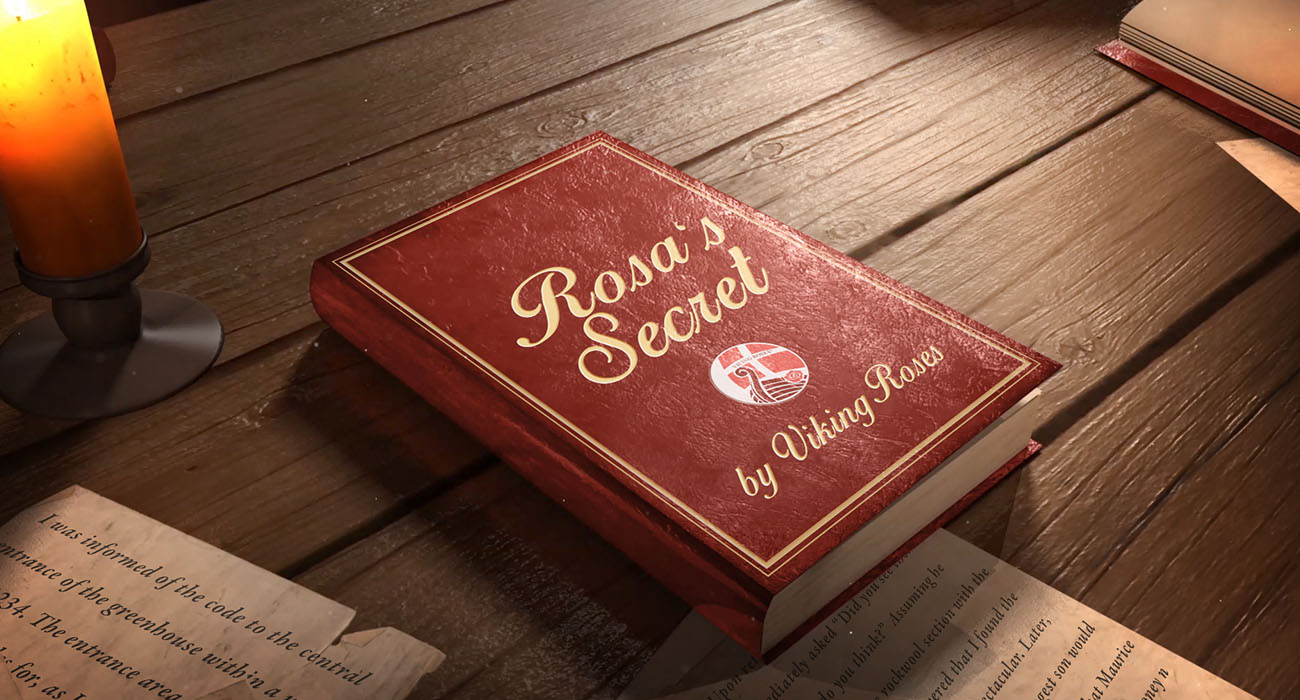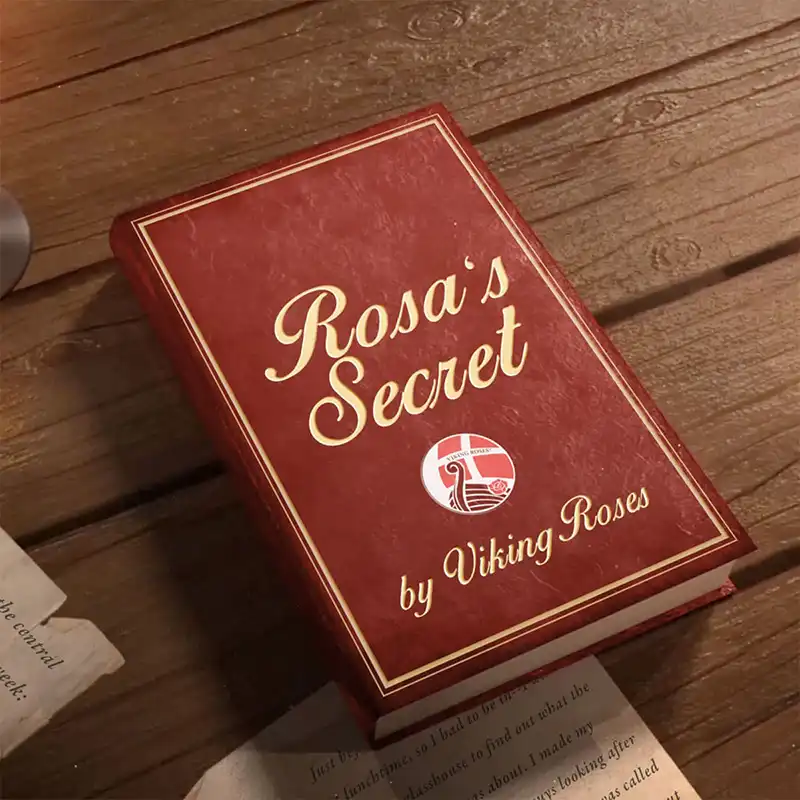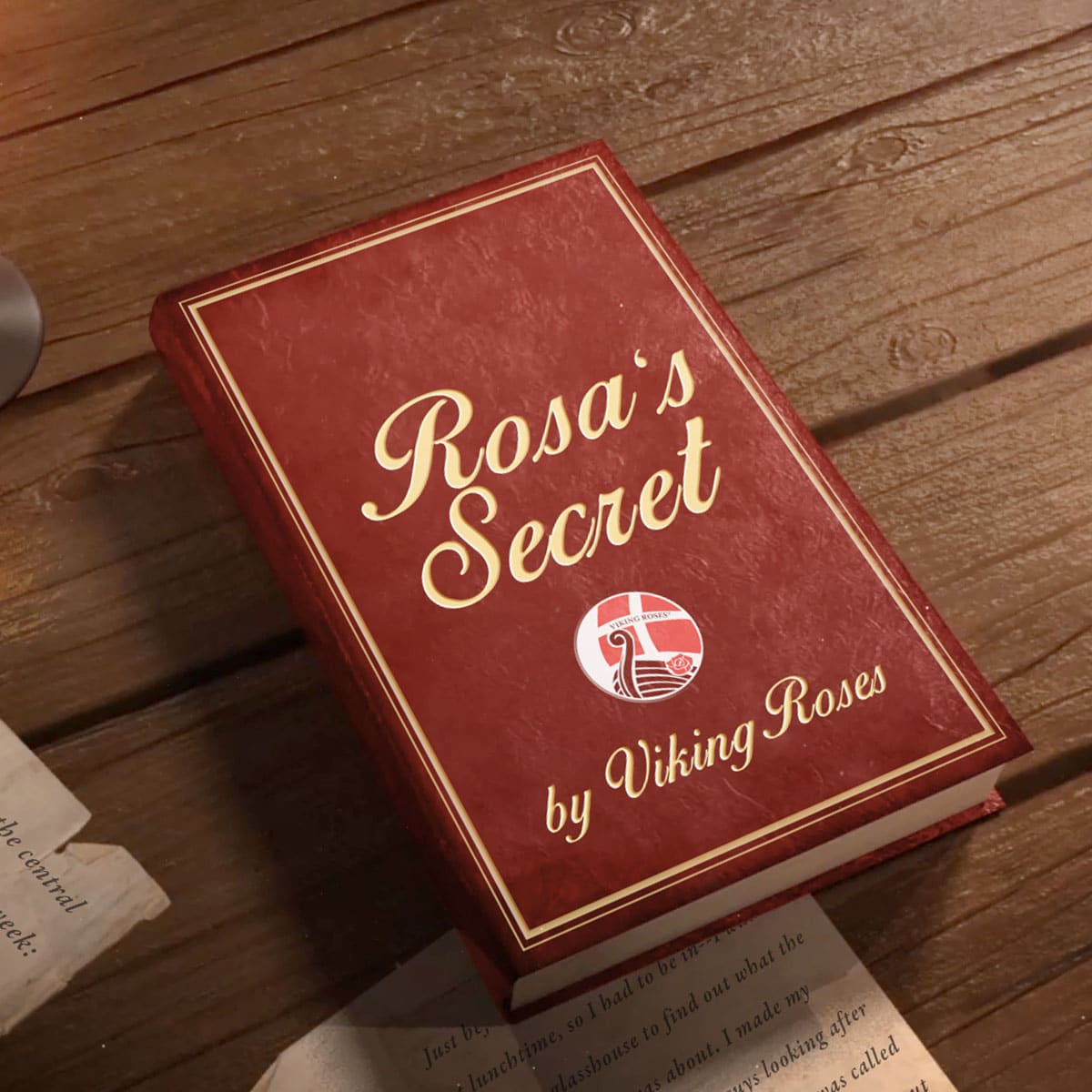“Alright girls, get ready to receive my seed!” I could hear Seedy shouting as I entered the greenhouse, armed with the state-of-the-art camera and manual. It was a hot day, perfect for pollinating. Sientje had arrived on the scene for the occasion, truly enjoying the work, despite Seedy’s language and odor. Father Dré’s eldest daughter had come in every summer for ten years now. She was good at the job which not a lot of people liked, since it had to be done in summer, seven days per week for a few weeks. “Fuck when they’re fertile”, Seedy would shout to Junior, who also seemed to enjoy the work, despite the fact that he would be regularly sneezing with eyes running because of an allergy for pollen. “Fucking Chinese!”
I collected the various random parts of my photography cabinet and tried to set it up. I quickly found out, that with the sate sticks no used holes should be stuck into. Why not fabricate something more stable with some wooden panels? I decided to do this at home after I came back from the CIOPORA International meeting. Maurice also wanted to come, to get exposure after having been locked up in the office for 25 years, but this was an event for Father Dré and I. Since Dré would bring Mother Sien and would proceed with a holiday tour in Tuscany, Big Anton was persuaded to come along. After all, Witte de Wit’s was his and this was part of Witte de Wit’s world.
I did not have—more honestly, I did not allow myself-- a lot of time for these photographs. I had to prepare applications for American plant patents of the pot roses that got lost in Denmark. If they had been stolen, or simply lost and somebody would start a production, they would be ‘free’ varieties, unprotected, ownerless, royalty free. Therefore, we quickly had to register in the potential production countries: Holland, Germany, Denmark, Japan, USA and Canada. The American application always came first: the Americans did not allow a grace period of a year in which the variety could be marketed before applying for protection. Most of the paperwork was done by our American lawyer Vincent Kardashian, ending with beautiful patent certificates complete with gold letters and red ribbon and a nice bill from Vince’s office. My job was to come up with the breeding history of each variety, a document in which the physical breeder transferred his rights to the variety to the company and a series of detailed photographs. For this I needed to dissemble a plant into one bud, one semi open flower, an open flower, a shoot, a piece of them with thorns (if any), different kinds of foliage, having three and five side leaves and one shot, to be made first, of the complete plant. If the plant was not nice enough, some extra branches or flowers were smuggled in, invisibly for the camera.
I decided to experiment with the high-tech Nikon at the same time, making notes of the settings of each photograph, ending with ‘automatic’ for each shot. I brought the film to the local chemist’s, following Father Dré’ instructions, “Size 10 x 15, glossy, two prints per photograph, because we also use them for Japan”.
That afternoon I prepared for CIOPORA. The hotel came with the registration for the meeting and Monsieur Schmidt would arrange a hotel close to his breeding facility in La Clauvade, just north of Toulon, where we would go to select new codes afterwards. Transport also was arranged: I would go with Anton. Father Dré and Mother Sien had already left that morning. They would take a scenic route. Chris already put the three bags with coins and three envelopes with some paper money on my desk. Over the last weeks I had already gone through different UPOV texts, several times, at different moments of the day. Breeder’s rights were hard to chew and digest. Dré must have read all documents for this meeting earlier and expected me to fulfil my role, as the thick envelope was still in his pigeonhole. I went through my photocopies and dug up earlier minutes that were referred to. While reading, my mind found itself in the European courtroom with Mr. Césaire, rose grower and one of its members as opposing sides. The days after tomorrow, in his role of CIOPORA’s Secretary General, Mr. Césaire would defend the interests of the same French member. “Funny world”, I thought, looking forward to tasting the atmosphere of the meeting with all prominent colleagues from the breeding world present.
Taste I would, some 1,200 kilometers further, but half a day earlier. When we arrived at the lobby of the Hotel Méditerranée in San Remo, I found that Father Dré and Mother Sien had already arrived, but, at 10.30 p.m., must be sound asleep. I turned to inform Anton, but he had disappeared. Picking up bar sounds, I figured where his attention and body had gone. I decided to drop the luggage in our separate rooms before venturing into my first confrontation with the international rose breeding world.
I figured out the names of the honorable members afterwards. At that time, I was both too baffled to memorize and unable to understand anyway the names of the middle-aged men I shook hands with. Omer Jefferson Jr., general manager of Jackson & Perkins, must have arrived just before us. His hair was still nicely split, tie all the way up and straight, his speech clear. “As a board member of CIOPORA I will introduce you officially tomorrow, but tonight I am already very pleased to welcome you to the magical world of roses.” He was at a sharp contrast to the grey bearded guy to his right, bloodshot eyes, who was Sam Cook from New Zealand. “That’s what my passport says, but I haven’t been there for ages. Competition time, you know.” I did not, but did not bother, as long as I was able to understand what was being said in the different tongues, luckily all related to Her Majesty’s. Pat Emmett was on his way out “for a piss, but I’ll be back”, grey hair split but messy, dark rimmed 1950s glasses at a slant, knot of his black tie half way down, as was the zipper he pointed to, probably to remind him where he was going. To Omer’s left was Arent Ruighaver, whose shirt had come out of his pants at one side, both sides of his suspenders down and whose English was very much the Queen’s. He was Dutch and owner of Superplant. Hendrik Jacobszoon I had met before, being a neighbor from Hazerswoude and good friend of Uncle Piet. He was drunk beyond recognition, but, like the rest, standing up firmly and engaged in some sort of conversation with Anton, who had the ability to make friends within five minutes. Stubby Stan Gidley King’s face was very red, and he was an Australian cattle breeder who had started working for Devor Nurseries in California. “From horns to thorns” he told me at the dinner-dance the next evening. The other Dutch breeder present, Piet Staphorst of Terra Blanca, did not say much, but smiled all the time.
Afterwards, in bed with the party continuing next door, I had realized that this had been an Anglo Dutch assembly, with the French, Germans and Japanese absent. At some point, the bar had closed, but thirst not quenched, so the assembly proposed to empty some mini bars and move to my room. After all, I was the youngest. Having Anton’s key, I took them to Anton’s room, handed him the key and quietly left a little while later.
Breakfast was very quiet. Wilhelm Von Bismarck was there, and he introduced me to his table-companion Bernd Solf, grey hair, small black moustache. Bernd pressed a small red adhesive cloth rose on my jacket. “Vielen Dank. Das ist schön.” Like every Dutch trader I could manage some German. ‘Coal German’ we call it. I sat on my own. Nobody of previous night’s assembly showed up and all the others present were unknown to me. Monsieur Schmidt arrived as I left. The meeting started at 9 a.m. Father Dré was there. He had had his breakfast punctually at 8, before me. Mother Sien had left on the Ladies’ Program, shopping and sight-seeing. We shared my agenda. Omer was behind the board’s table, eyes squinting for direct sunlight. The other barmen were absent. Incomprehensible, why come all the way to Italy for a meeting and then not attend? Luckily, they showed up for the afternoon’s session on Mr. Césaire’s Green Paper in reaction to the latest UPOV proposals. Still, Anton and Hendrik preferred to have a look at the marina, in search of starlets. The morning was tough. I barely could stay awake through the legal nitty gritty. Omer repeatedly dozed off behind the table. Still, he had gained my respect. The honorable gentleman.
Pat the Irishman also was there in the afternoon. The night before he had got lost in the hotel to find the bar empty upon his return. At the front desk he had called Omer’s room, only to wake up his daughter. “No, my father does not report in in the middle of the night to tell me where he’s going,” she had told him and then hung up. “Very unlike Omer,” Pat had thought.
The French were awake and present during the meeting. Mr. Alain Ferry had sharp observations and very practical suggestions for the membership. His family had been in the breeding for over a century, with Cabbara® and Sonja® still as the world’s best-known cut roses and Paix®, released at the end of World War II, as the number one garden variety and ancestor of today’s cut roses. Father Dré informed me, that Alain’s parents died in a plane crash at a young age, leaving ‘little Napoleon’ and his younger sister Sonja to run the business at sixteen and thirteen. Alain turned a playboy, nearly lost the business and came to his senses ten years later. Replace the graying curls by straight hair, Alain would indeed have been an exact replica in looks and size of the French emperor.
Monsieur Schmidt introduced Father Dré and I to his Italian friend, Agostino Crispi and his four sons, who were all present. Although Father Dré had known Monsieur Schmidt for twenty years and Monsieur Schmidt Crispi for that same number of years, Father Dré and Agostino had never met. During the meeting I watched Monsieur Schmidt and Agostino filling their ashtrays, but all of the sons abstaining. Monsieur Schmidt invited us for a meeting in La Clauvade the next day, when we planned to be there. He was going to make an announcement then and wanted us to be the first to know. Afterwards, Agostino would invite everybody for dinner.
Father Dré proved to be a very serious ballroom dancer, but did not seem to enjoy it. Looking deadly serious, he would swirl Mother Sien around, half his height and double his width, doing her utmost. A few times, Father Dré would stop briskly, looking angrily, mumbling to his wife and starting the countdown to the next starting beat.
The second couple on the floor were René Césaire and his beautiful daughter Candice, attracting the approving looks of the generally male crowd along the sides of the floor. René’s crippled wife was also present. During one of his breaks Father Dré told me the story of René’s life, which took away most of the controversy he had roused with me. The Césaires had successfully run a rose farm with the Groupe Ferry variety Sonja®. Not too long after replacing the variety with his co-owned mutation, the Césaires were in a car accident after one of the many parties they attended. For three months René was at his wife’s side in the Nice hospital. When they returned home, he personally adapted their house to accommodate her wheelchair. He was her nurse, not even involving his two teenage daughters in this. The farm had turned into a shambles and René was forced to give it up. He picked up a legal study, became the representative for some rose breeders at ASINSEL and, after a big argument with the board, he set up CIOPORA specifically for vegetatively propagated plants. Solidary with his fate, Ferry became the first member, followed by other breeders. “Hence today, there are two associations lobbying with UPOV with basically the same arguments”, Father Dré concluded, “and never during a meeting ask why we do not join ASINSEL”.
Omer had brought his tuxedo for the occasion and formed half of the third couple of dancers. The other half was clad in a tight pink dress, thong and bra visible. Blonde Rosie Rhodes had come all the way from Zambia to display her excessive flesh. This was too much for most men. Anton could not keep his eyes from her, and, observing other tables, neither could Arent Ruighaver. “ZamDolly”, Bernd whispered to me. Von Bismarck and Witte de Wit had teamed up for the evening, highlighted by Omer handing over a cheque to René and Mrs. Césaire on the occasion of René’s thirtieth anniversary as Secretary General of CIOPORA. Apparently, the occasion also was very special for the Césaires, as this was only the second time that Father Dré saw Mrs. Césaire. Luckily, the evening ended at a decent time, so I could catch some sleep in anticipation of next day’s visit to La Clauvade.
The parking garage of Hotel Méditerranée was built for Fiats and Renaults. I had to give centimeter directions to Anton to help him manoeuver out his Mercedes. Father Dré was in the next section, moving his Volvo forwards and backwards between the concrete pillars and other cars. At some point Mother Sien got out to assist. Her “Stop!” was followed by a bang and Father Dré gesturing to his wife to get in the car immediately. As if nothing had happened, he waved to us to go out first, so he could follow. Monsieur Schmidt was waiting for us outside in a brand-new Bentley to lead the pack to his breeding houses.
LAVAL International’s breeding approach was similar to what we had seen at Von Bismarck and very unlike Witte de Wit’s. In Benthuizen, the rose seeds were sown in little trays with peat moss and transplanted into pots after a first selection round. These pots were then put together on aluminum tables and watered with an eb and flow system with which the table was filled with a specific amount of water, containing fertilizers and drained after a few hours, with the drain water collected in gutters. In La Clauvade and Hamburg area the seeds were sown in soil, in beds. Rejected varieties were pulled out, so at the end of November, after the open houses for clients and colleagues, there would be scattered plants left which then would be propagated into bigger quantities for selection in the next year.
Big Anton loved to be in the roses, constantly squeezing the flower heads, bending down to look at the bottom of the plants and holding several flowers together at arm’s length. He had been here before. Since he had such a keen eye on varieties, Father Dré had also brought him the year before. Father Dré was in a different bed, taking notes on lists he had received from Said, the breeder of Monsieur Schmidt. “Selection is something you do alone, uninfluenced by others,” Father Dré explained. Anton did not want lists or notes. Occasionally he would fetch Father Dré to come and look at a specific code. “Have we seen this one in Holland, Dré?” or “See the number of brook shoots on this one, Dré”. Several of the varieties had some powdery white substance on the leaves. “Mildew,” Father Dré said. “Good in selection, but bad for the grower.”
I did not understand. “When you see mildew on a code, most of the times we discard it. But if you take Eva®, it’s the number one red, but very susceptible to mildew. A good grower can work with it, keep it out with sulphur burners and a good climate in the greenhouse. The variety has such good other characteristics, that they accept this extra work.” Since he was at ease and talkative, I seized the opportunity to find out more. “You know, Dré, I tried a bunch of Eva® at home, followed all instructions on the little sachet with preservative that came with the bunch, but after two days all flowers were hanging. What did I do wrong?” “If you had a clean vase, water with some Chrysal, you cut off a piece of the stem, did not put the vase in the sun, at a draughty spot or close to fruit, you probably did nothing wrong.” I was surprised. “Why then did you introduce this variety, if it is not good?” Father Dré must have answered this question a dozen times before, as his reply sounded like a dictate. “The variety opens very well and lasts for a week, but the growers cut it too tight. Why? Because the flower wholesaler pays him more for a raw flower and less for an open flower, even if this lasts longer. Raw flowers can be kept in his cool storage for a while and still look fresh. And, moreover, you also chose to buy closed flowers instead of open, because you thought they were fresher. Right?” “There were no others, but I would have. You’re right. But why doesn’t the Flower Council communicate this in their advertising?” “The Flower Council is paid by the growers and wholesalers and it’s not in their interest.” I decided to buy chocolates the next time, bonbons never disappoint.
In the meantime, Anton had dragged Monsieur Schmidt into one of the beds, pointing excitedly to a white code with a huge flower, then sticking both thumbs up and saying, “Witte de Wit test Holland”. This enthusiasm dragged me from the chocolates back into the flower business. I wrote down the code to make sure that we would receive material for testing.
Agostino and his three musketeers arrived in the selection house, followed by two heavily make-upped blondes on high heels, looking terribly out of place. Monsieur Schmidt kissed one and introduced her to us as “ma fiancée Danny”. The other’s identity remained unknown, but she must be close to Agostino, as she followed him docilely to the office, where we went for the announced meeting. There, Monsieur Schmidt made the introduction round, in broken English: “My friend for twenty years, Agostino Crispi and his sons Francesco, Vincenzo and Guiseppe.” The blonde was “a friend” and remained nameless.
LAVAL, Mr. Schmidt’s dream of ‘La Val des Roses’ for the La Clauvade area, was Witte de Wit’s agent for France, Italy and the Middle East and Witte de Wit represented LAVAL for the Benelux, but only for the cut flowers. The garden roses were handled by the Belgian firm of Leopold Tombeur. I learned that Crispi was our sub-agent for Italy and that our variety Leonardo® was a big hit here. Father Dré looked proudly surprised.
Only Vincenzo spoke English. With the others I was able to communicate in French. Monsieur Schmidt announced that, at 72, he was going to slow down professionally, “only professionally”, he repeated, winking at his Danny. “In short, the purpose of today is to introduce you to the Crispi family, who I sold LAVAL International to. I will stay on as an advisor and selector for the next three years.” While I translated for Anton, Dré reacted with a big smile: “Well, Paul, then we can shake hands and have a glass of wine, while the new owners of both our companies can do the work.” “Let’s do that,” Monsieur Schmidt replied, “Agostino is inviting us for a get-to-know dinner. Let’s go.”
To stimulate the getting-to-know, I changed cars with Vincenzo, who took the challenge of hands-and-feet communication with Anton and I squeezed in the back of the dark blue Mercedes with the two remaining musketeers, digging up the French that had been hidden for fifteen years. Monsieur Schmidt and Danny followed in the shiny Bentley, funding now known, and Father Dré closed the ranks with Mother Sien, who must have stayed in the car all the time.
We drove back to Italy and stopped at a small restaurant overlooking the Mediterranean. The view was spectacular. Agostino and the cook hugged and held each other when Vincenzo indicated that he was the third-generation owner of this restaurant and special friend of the family. Father Dré, Monsieur Schmidt, Mother Sien and Big Anton were sitting at one end of the long table, the blondes entertained each other in the middle and I ended up with the four Crispis at the other end. In the car Agostino had already given a family history. They were rose growers, with two nurseries, one in Latte Ventimiglia, the north, and the other in Bari, the south. Basically, the eldest son, Francesco, ran the Bari flower operation, Guiseppe dealt with the NIRP agency on the national market and Vincenzo, the middle and serious son, was about to finish university and enter the business to take on the international side. With the acquisition of LAVAL, Agostino would concentrate on breeding and selection. Agostino had come to Holland for nearly twenty years and managed to understand Dutch.
We arrived in the restaurant around 8 p.m. and, after several rounds of aperitifs, must have started our first course some two hours later. Father Dré looked grumpy, checked the breast pocket of his shirt for unknown contents, but the rest of his end of the table seemed to be having a good time. The food was as surprising as the entourage and the company. Only used to a maximum of three courses, I was already full when at 1 a.m. the fourth and main course arrived, with two more to follow. Knowing what was coming, the Crispis also changed our hotel reservation from a modern and anonymous sleeping place to the former home of a marquis. That night, wide awake in my four-posted bed, I was truly filled with joy, wine and food. If rose breeding also was getting excited over a code and working with old boys and new friends in San Remo, I would even struggle with the photography cabinet, bags of coins and UPOV texts with a big smile.
The next day, we briefly visited Anton’s nephew Piet, who ran a garden center further to the south and returned home, doing 1,600 kilometers in 12 hours, including lunch, gas and coffee breaks.
The following day I picked up the photographs for the American application. “I noticed that Mr. Witte de Wit is still struggling with the camera,” the shopkeeper said, when handing over the package.





